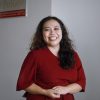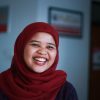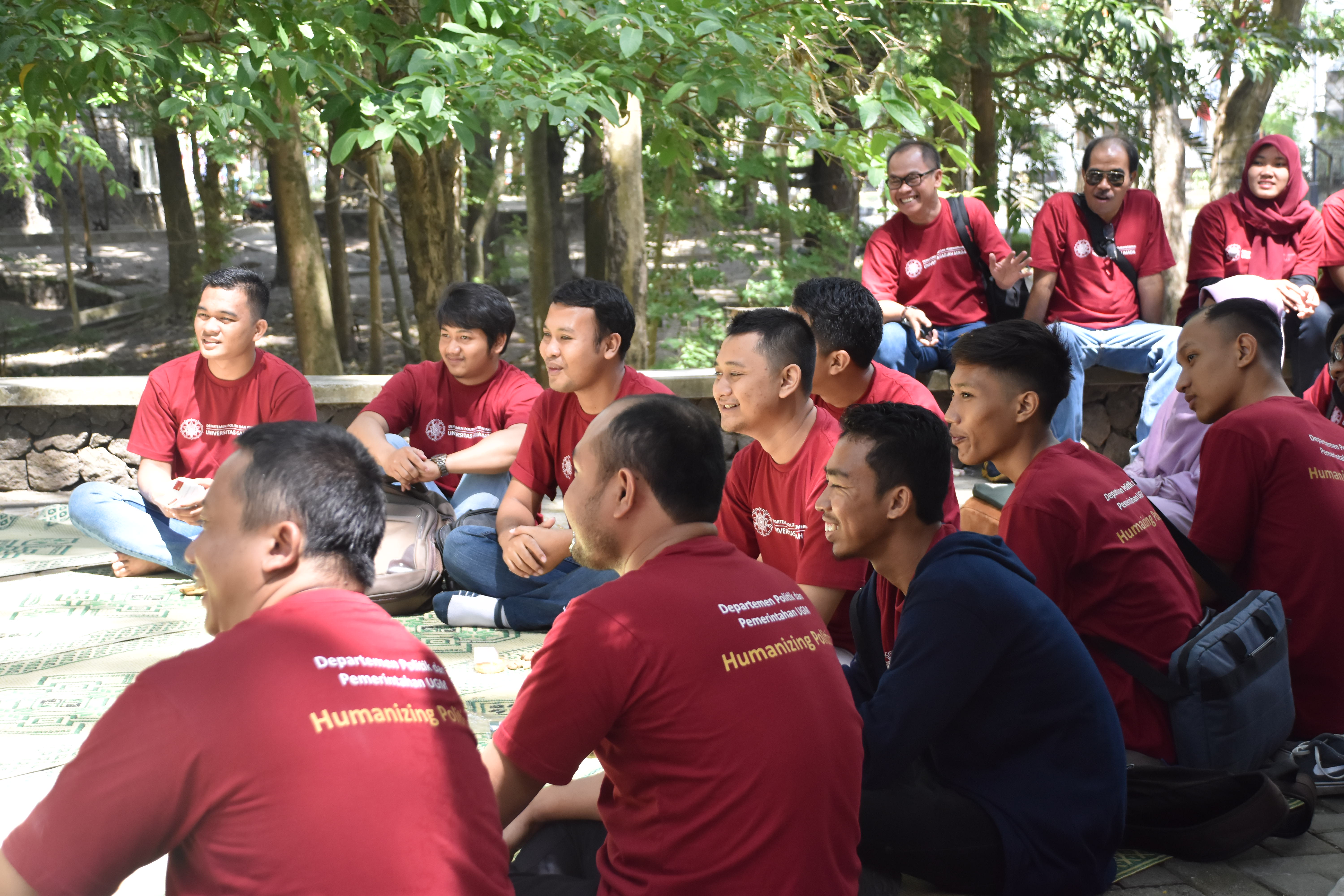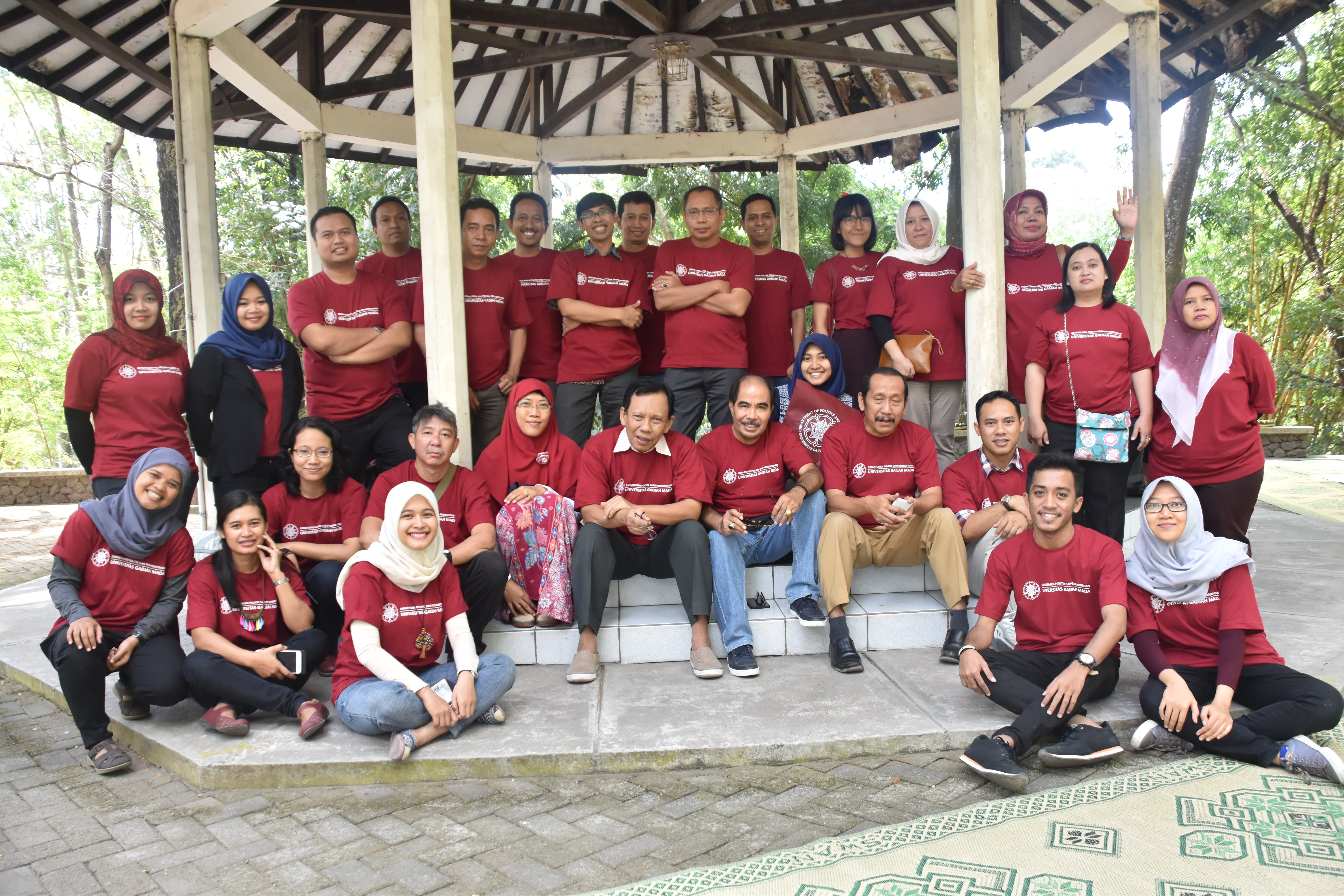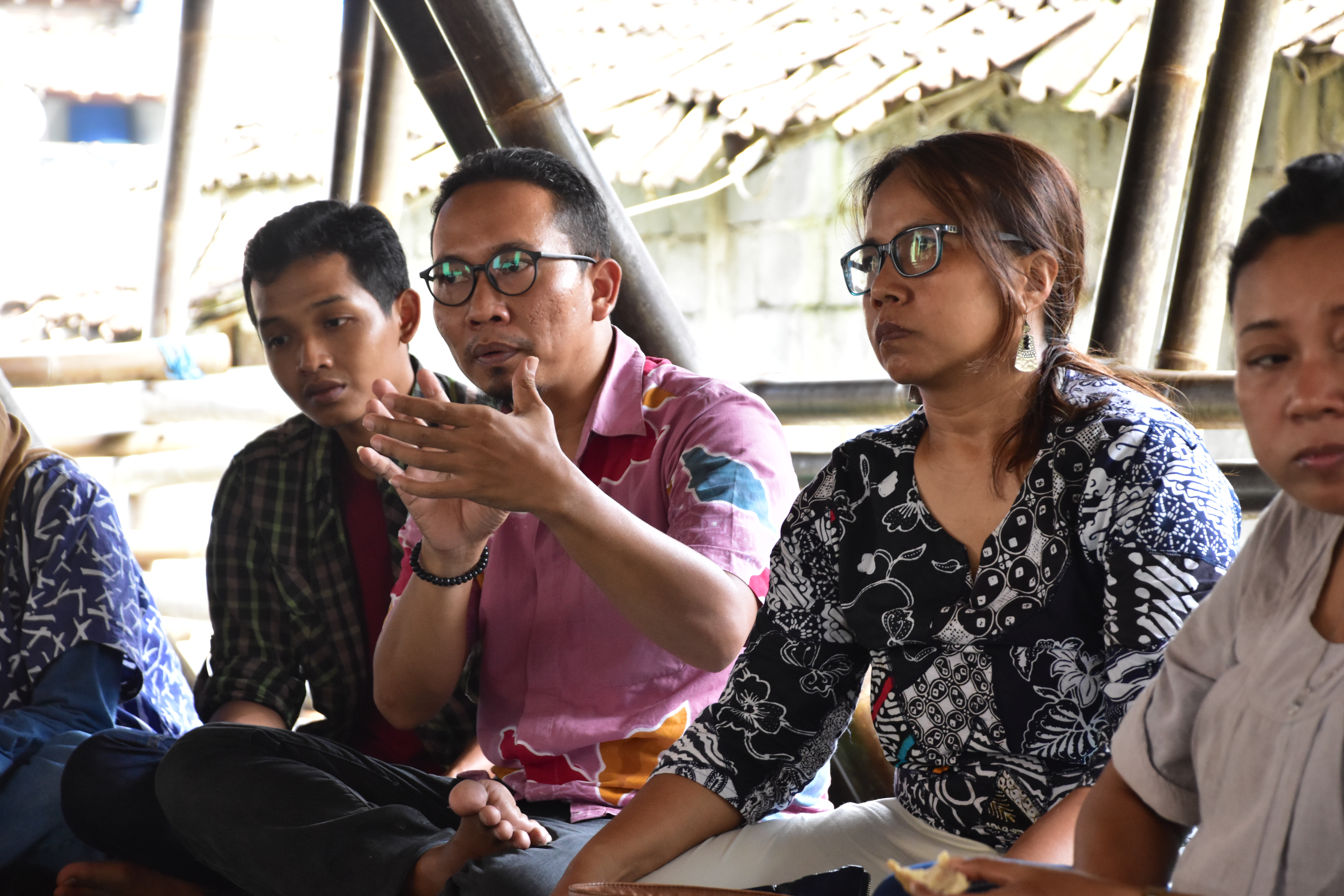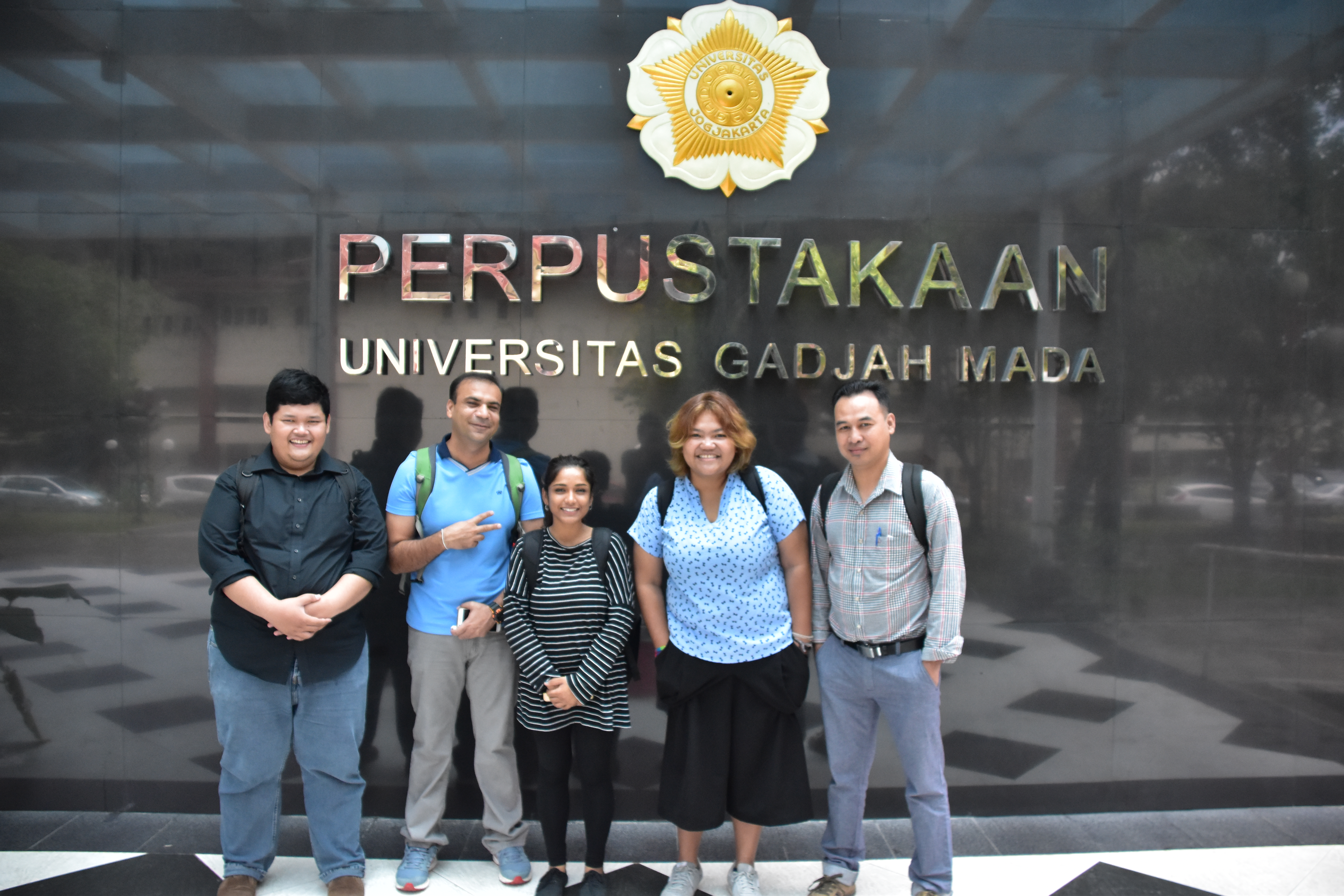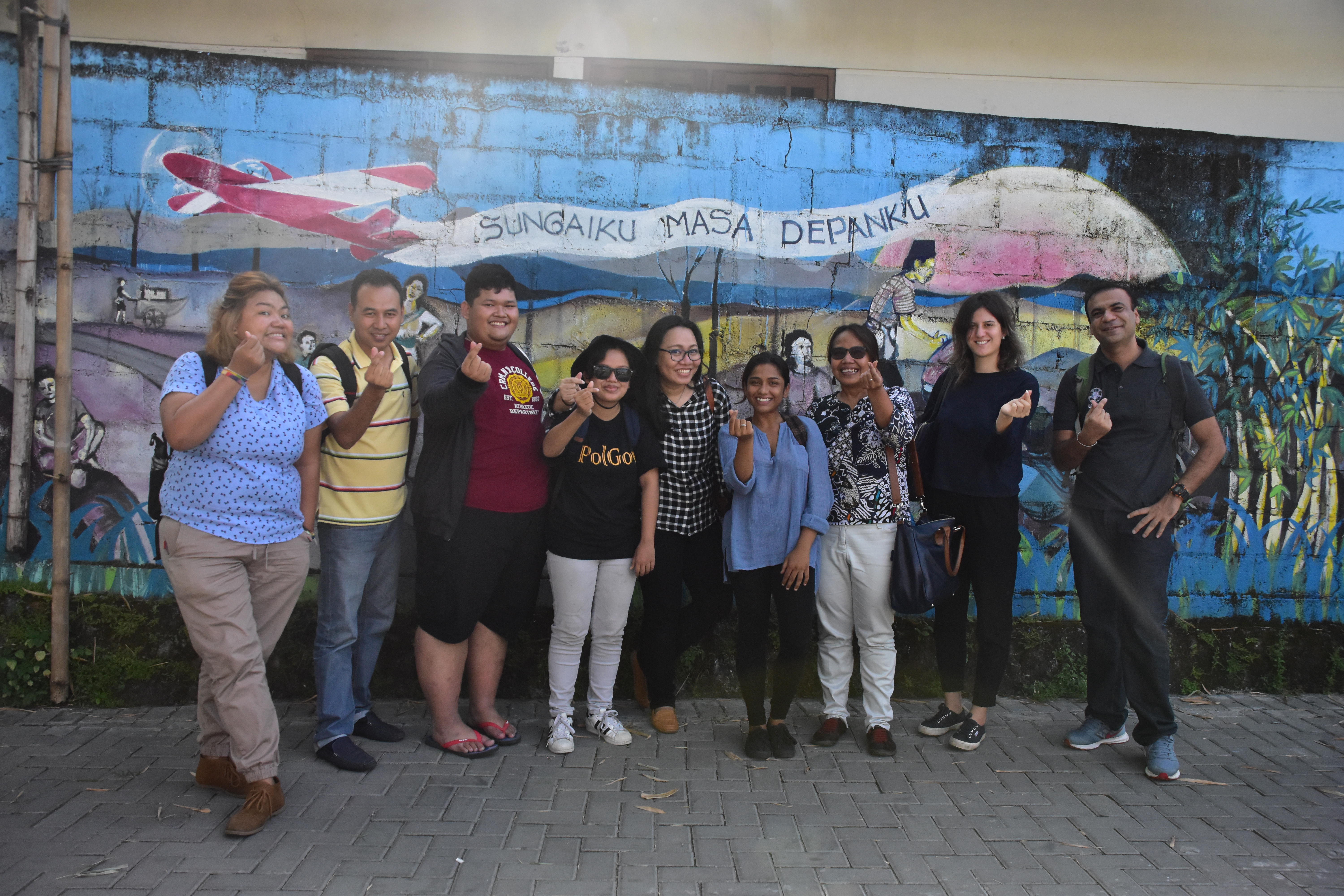DOCTORAL PROGRAM / S3
Department of Politics and Government
Faculty of Social and Political Sciences
Universitas Gadjah Mada
- Curriculum
- Academic Guide
- Student Activities
- Dissertation
- Student Engagement
- Complaint Service
- Student Candidate
Information related to the DPP UGM Doctoral Program curriculum can be viewed via the following link:
KRS
Taking Courses
Every active student is required to take courses in each semester. The process and substance points that include the mechanism for taking courses are contained in the order and mechanism for taking courses as follows:
- Taking courses (KRS Filling) is done after students register
- The study program determines the number of credits with a package system consisting of compulsory and optional courses that are offered in the semester that students will run.
- Take the number of courses with a total credit that does not exceed the allotment as regulated by the study program and faculty
- Taking courses by referring to the study program curriculum guidelines
- Using Academic Information System (SIA)
- Fill out KRS according to the schedule determined by the faculty
- Revise KRS at least 1 week before class starts
- Lectures start at the beginning of the semester, and at the end of the semester the Study Results Card (KHS) will come out in accordance with the KRS that has been filled in
Course Remedial
Students have the right to repeat courses or take courses that have been taken by the student concerned. To carry out this process, previous students must meet the requirements for the substance of the course repetition mechanism contained in the regulations made by the Faculty. The following is the mechanism for repeating courses:
- Students have the right to repeat courses that get a minimum grade of C
- Students who get a grade of B or more cannot repeat the course for any reason
- The final grade for the maximum repeated course is A/B
- The repetition of a course is a maximum of one time, except for compulsory subjects that do not pass
In addition to taking the entire course again, students are also entitled to take remedial exams; both for the mid-semester and end-semester exams, with the following mechanism:
- Students have the right to remedial if they get a score less than C or do not pass
- Remedial is done no later than 1 week after the lecture runs in the following semester
- Students get a maximum value of C if they pass the remedial
- The remedial results do not affect the number of credits to be taken in the next semester
- The requirement to be able to take remedial is to have attended lectures at least 75% attendance
Scoring Complaint
The value complaint mechanism is adjusted to the learning contract in each course. If there are things that need to be communicated and further confirmed, please contact the lecturer directly. If you do not get a response from the lecturer concerned within two weeks, it can be facilitated by the DPP Doctoral Study Program Manager
Lectures
Student Lectures for the DPP FISIPOL UGM Doctoral Program begin according to the lecture schedule informed by the DPP manager, by following the academic calendar that has been set by the university and faculty. In the lecture process, students will be divided into lecture and non-lecture pathways. This lecture process is related to the process of preparing candidates as independent researchers. In terms of the process, phase and substance of independent research, it must have an adequate competency weight. For students who do not have the required maximum competence, they will be facilitated with a number of courses which are organized in a structured manner. Thus, the curriculum structure is intended to support the theoretical capacity and methodology used in analyzing political issues offered to doctoral candidate students. However, if there is evidence that the student already has the required maximum competence, then the student is not required to take the specified courses, which automatically go through the non-lecture/waived scheme.
The existence of facilities in the form of lectures with courses can be held in a structured manner if there are more than 5 students. When there are more than 5 students, lecture facilitation is carried out with assistance by experts or with lecture classes in general.
- The doctoral program study load for participants with a master’s degree (S2) in a field is at least 40 credits scheduled for four semesters and can be taken in less than four semesters with a maximum study duration of 10 (ten) semesters.
- The doctoral program study load for participants with master’s education (S2) is not in the same area of at least 50 credits and can be taken for at least 6 (six) semesters and no later than 10 (ten) semesters.
Students who have passed the comprehensive exam can take the academic mentoring process. The promoter and co-promoter supervise students in making proposals, conducting research and preparing dissertation manuscripts. Furthermore, students can take a proposal exam after being approved by the Promoter Team. The proposal exam is a scheduled activity that is held with the lecture season in one semester. If the student is declared repeat, the exam may only be held once and must be held within a maximum of three months from the first proposal exam. Students conduct dissertation research after passing the dissertation proposal examination and obtaining approval from the Promoter Team. The promoter team declares the serviceability of the dissertation manuscript to be assessed by the Assessment Team. Students must revise the dissertation manuscript no later than six months from the date of assessment of the dissertation manuscript. Students take closed examinations after their dissertation manuscript is declared eligible by the Assessment Team. Doctoral Program students who are declared to have passed the closed examination may propose to take part in the graduation or open examination.
Evaluation and Scoring
Exam
Evaluation of the learning process in the Doctoral Program is carried out through:
- Semester exams for courses;
- Dissertation proposal examination or comprehensive examination;
- Report on the progress of research results;
- Dissertation feasibility assessment;
- Dissertation exam.
Scoring
- The course assessment scheme can be agreed upon through a class discussion process at the initial lecture sessions.
- The assessment scheme must be in accordance with the learning mission that has been set.
- Evaluation or assessment of learning outcomes is carried out with a combination of:
- written examination;
- oral exam (interactive);
- assignments: (i) writing a working paper; (ii) journal articles; (iii) critical reviews; (iv) field activities.
- Learning evaluation materials are returned to students.
- The student’s work is recommended for publication.
- The responsibility for publishing the assignment results lies with the students, not the lecturers or study programs and faculties.
- Students who are proven to have committed plagiarism in assignments and lecture exams will get an E score.
Students’ final grades will be submitted in the form of letters and numbers with an explanation of the quality and weights contained as follows:
Student Leave
Leave Application
Students are entitled to take academic leave during their study period. The conditions for taking academic leave must follow the following conditions:
- Students can take academic leave for a maximum of two cumulative semesters.
- The application for academic leave is approved by the Promoter team and the head of the study program and is determined by the Dean’s Decree.
- Students are not entitled to receive guidance from the Promoter team during academic leave.
- The student’s study period is not counted during academic leave.
- Applications for academic leave are made during the registration period before the new semester starts.
- Students submit an application to be active again to the Study Program accompanied by a leave letter from the University
- Active Re-submission is done during the registration period before the new semester starts
Lecturers
ACTIVE LECTURERS
- Prof. Dr. Pratikno
- Prof. Dr. Purwo Santoso
- Prof. Dr. Mohtar Mas’oed
- Prof. Dr. Ichlasul Amal
- Prof. Dr. Cornelis Lay
- Prof. Dr. Susetiawan
- Dr. Haryanto
- Dr. rer. Pol. Mada Sukmajati
- Dr. Amalinda Savirani
- Dr. Wawan Mas’udi
- Dr. Nanang Indra Kurniawan
- Dr. RB. Abdul Gaffar Karim
- Dr. Novi Kurnia
- Dr. Budi Irawanto
- Dr. Kuskridho Ambardi
- Dr. Suripto
- Dr. Gabriel Lele
- Dr. Nanang Pamuji Muga Sejati
- Dr. Hermin Indah Wahyuni
- Dr. Poppy S. Winanti
- Dr. Maharani Hapsari
ACADEMIC CALENDAR
The academic calendar for doctoral program students follows the schedule set by the Faculty of Social and Political Sciences, Universitas Gadjah Mada. More information can be found at akademik.fisipol.ugm.ac.id
Student Lectures for the DPP FISIPOL UGM Doctoral Program begin according to the lecture schedule informed by the DPP manager, by following the academic calendar that has been set by the university and faculty. In the lecture process, students will be divided into lecture and non-lecture pathways. This lecture process is related to the process of preparing candidates as independent researchers. In terms of the process, phase and substance of independent research, it must have an adequate competency weight. For students who do not have the required maximum competence, they will be facilitated with a number of courses which are organized in a structured manner. Thus, the curriculum structure is intended to support the theoretical capacity and methodology used in analyzing political issues offered to doctoral candidate students. However, if there is evidence that the student already has the required maximum competence, then the student is not required to take the specified courses, which automatically go through the non-lecture/waived scheme.
The existence of facilities in the form of lectures with courses can be held in a structured manner if there are more than 5 students. When there are more than 5 students, lecture facilitation is carried out with assistance by experts or with lecture classes in general.
- The doctoral program study load for participants with a master’s degree (S2) in a field is at least 40 credits scheduled for four semesters and can be taken in less than four semesters with a maximum study duration of 10 (ten) semesters.
- The doctoral program study load for participants with master’s education (S2) is not in the same area of at least 50 credits and can be taken for at least 6 (six) semesters and no later than 10 (ten) semesters.
Students who have passed the comprehensive exam can take the academic mentoring process. The promoter and co-promoter supervise students in making proposals, conducting research and preparing dissertation manuscripts. Furthermore, students can take a proposal exam after being approved by the Promoter Team. The proposal exam is a scheduled activity that is held with the lecture season in one semester. If the student is declared repeat, the exam may only be held once and must be held within a maximum of three months from the first proposal exam. Students conduct dissertation research after passing the dissertation proposal examination and obtaining approval from the Promoter Team. The promoter team declares the serviceability of the dissertation manuscript to be assessed by the Assessment Team. Students must revise the dissertation manuscript no later than six months from the date of assessment of the dissertation manuscript. Students take closed examinations after their dissertation manuscript is declared eligible by the Assessment Team. Doctoral Program students who are declared to have passed the closed examination may propose to take part in the graduation or open examination.
Financial Aid
Students can submit proposals for funding assistance for student activities in the form of international conferences. Students can submit an application attached with proof of invitation and event materials. For reports, students can submit proof of plane tickets or accommodation.
Public Lecture
Not only learning from the classroom, public lectures enable students to learn about current issues and practices through resource persons who are experts in their fields. Public lectures broaden the scope of student learning beyond existing courses and provide opportunities for students to interact with these practitioners. The lectures are carried out like workshops so that they are open to all generations.
One of the workshops organized by the UGM Political Science Doctoral Program was filled by Dr. Ismail Fahmi (Founder of Drone Emprit) with the topic “Introduction to Social Network Analysis Materials” with cross-departmental doctoral students and participants in the general category.
Guest Lecturer
Guest lecturers are an effort to channel field knowledge exclusively from practitioners in their fields to students by using discussion methods to question and answer. The presence of guest lecturers makes the discussion in lectures more in-depth. Some courses in the doctoral program invite guest lecturers who are experts in certain lecture themes. Public lectures are held in semester 1.
Information related to the final project can be accessed through the following link:
Research
Research is an important element in the student learning process, therefore the UGM Department of Politics and Government opens wide opportunities for students to collaborate in research activities carried out by the UGM Department of Politics and Government together with the Research Center for Politics and Government (PolGov). Some of the roles that are actively held by students are enumerators, transcriptors, and guides.
As enumerators, students have the opportunity to go out into the field and conduct interviews with resource persons under the guidance of PolGov researchers. As transcriptors, students are able to substantially participate in discussions and research interview results and write them down in text form to be processed into research data. Then, as a guide, students who have knowledge of research areas will go to the field and participate in a series of research with PolGov researchers.
Publication
In terms of publications, student involvement is widely open in making written works in the form of journals and books. Students can publish journals written by students together with the promoter team. In addition, students can get involved through “Call for Paper” by fulfilling the conditions as below:
Writing theme:
- Socio-political movement
- Agrarian-land politics
- Elections and regional head elections
- Other themes related to politics and governance in Indonesia
- Journal manuscripts must consist of a minimum of 4,000 words
- The manuscript has never been accepted or published in any journal
- The author is able to follow the publishing flow in accordance with the provisions of the PolGov Jurnal Journal
Media
Media is a means of communication between stakeholders within the Department of Politics and Government UGM which is manifested in the form of social media Instagram, Facebook, Twitter, YouTube, TikTok, to spotify “Ministry of Politics and Government UGM”. In its development, the media collaborated with student creativity in course assignments that were accommodated by the “Student Work” segment and collaborated in content creation.
Complaint Service
Students can submit critics, suggestions, and other needs related to the UGM Department of Politics and Government through:
Information regarding registration, requirements, fees, etc. can be accessed via the following link:
DOCTORAL (Student Candidate)
Scholarship Information
List of internal and external scholarships that can support the Doctoral Program lecture process.


Current Dissertation
Several doctoral dissertations have been successfully completed by the DPP UGM Doctoral Program Students.
NEWS
Dissertation Guide Information
Dissertation Doctoral program students are required to complete a Dissertation...
Read More

